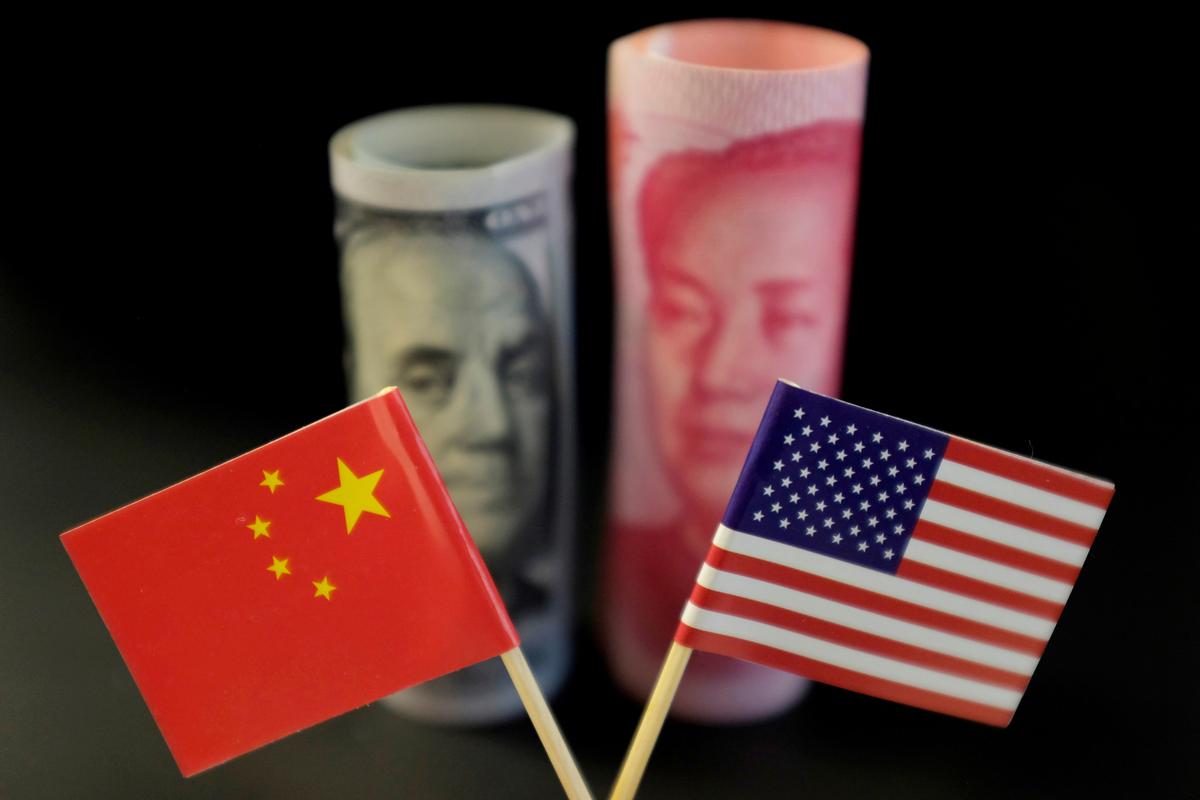
NEW YORK (Reuters) – A truce in the trade war between the United States and China that pushed large-cap stocks to new record highs Monday does not appear to be enough to buoy the shares of small U.S. companies that are struggling under the weight of higher tariff costs.
Lower margins and less pricing power are preventing small companies from either passing on or weathering the effects of higher trade tariffs to the same degree as large caps, effectively putting a ceiling on their growth prospects, fund managers and analysts say.
That is souring investors on their shares and leaving small-caps underperforming in a steep reversal from last year, when many investors jumped into small companies in the expectation that they would be insulated from the trade wars because of their focus on the domestic market.
For the year to date, the benchmark Russell 2000 index of small companies is up nearly 17%, yet remains more than 8% below the record highs it reached in August 2018. The large-cap S&P 500, by comparison, hit record highs Monday as part of its nearly 18.5% rally this year.
“I would not be overweight in small caps right now because the risks are too high relative to large caps,” said Barry James, a portfolio manager at James Advantage Funds whose James Micro Cap fund is one of the top-performing small-cap funds for the year to date. “That’s eventually going to change and they could have a spectacular run, but this year at least the index overall is not attractive from a risk standpoint.”
The Russell 2000 index is dominated by financial and healthcare, two sectors that face the risk of compressed margins from lower interest rates and increased governmental regulation if Republicans lose either the presidency or the Senate in the 2020 elections, James said.
As a result, James is focusing on companies like recreational products maker Johnson Outdoors Inc and electric wire maker Encore Wire Corp that have above-average growth prospects, he said.
The United States and China agreed on Saturday to resume trade negotiations after U.S. President Donald Trump offered concessions to his Chinese counterpart Xi Jinping when the two met at the sidelines of the Group of 20 summit in Japan.
Those included no new tariffs and an easing of restrictions on tech company Huawei Technologies Co Ltd [HWT.UL]. China agreed to make unspecified new purchases of U.S. farm products and return to the negotiating table.
Dan Mahr, a portfolio manager of the Federated MDT All Cap Core fund, said that his fund remains underweight small caps in favor of larger companies like MasterCard Inc and Charter Communications Inc that are benefiting more from market momentum.
“Investor sentiment is much higher as you go up the cap-scale,” he said.
WEAKENING GLOBAL ECONOMY
A weak global economy is also weighing disproportionately on small-cap stocks, which are saddled with rising international revenues and feel a greater hit from trade tariffs than large caps, said Venu Krishna, deputy head of U.S. equity research at Barclays.
“The core issue is that global growth is slowing and while the trade war concerns ebb and flow there’s a general sense that they are here for longer,” he said. “We don’t see a catalyst that will push small-caps higher.”
Barclay’s now estimates that small-caps will post EBITDA (earnings before interest, tax, depreciation and amortization) growth of 2% this year, down from its estimate of 5.5% growth earlier this year, Krishna said.
Those economic concerns are pushing investors to pile into companies that seem to be flawless and punish those that might miss analyst estimates or have additional leverage on their balance sheets, said Randy Gwirtzman, a portfolio manager of the Baron Discovery fund.
“If it’s not perfect, it’s not working right now,” he said.
As a result, Gwirtzman has been moving into biotech companies Revance Therapeutics Inc and Esperion Therapeutics Inc that have been hurt by investor skittishness over the healthcare sector. At the same time, he has been adding to his position in cyber security company ForeScout Technologies Inc, whose shares tumbled in May after its guidance fell short of Wall Street expectations.
“There are many quality companies that for whatever reason people are just scared of,” Gwirtzman said. “People are running to things that have no problems in them and paying a lot, and we’d rather get things with manageable problems at much lower multiples.”
 0 comments
0 comments





